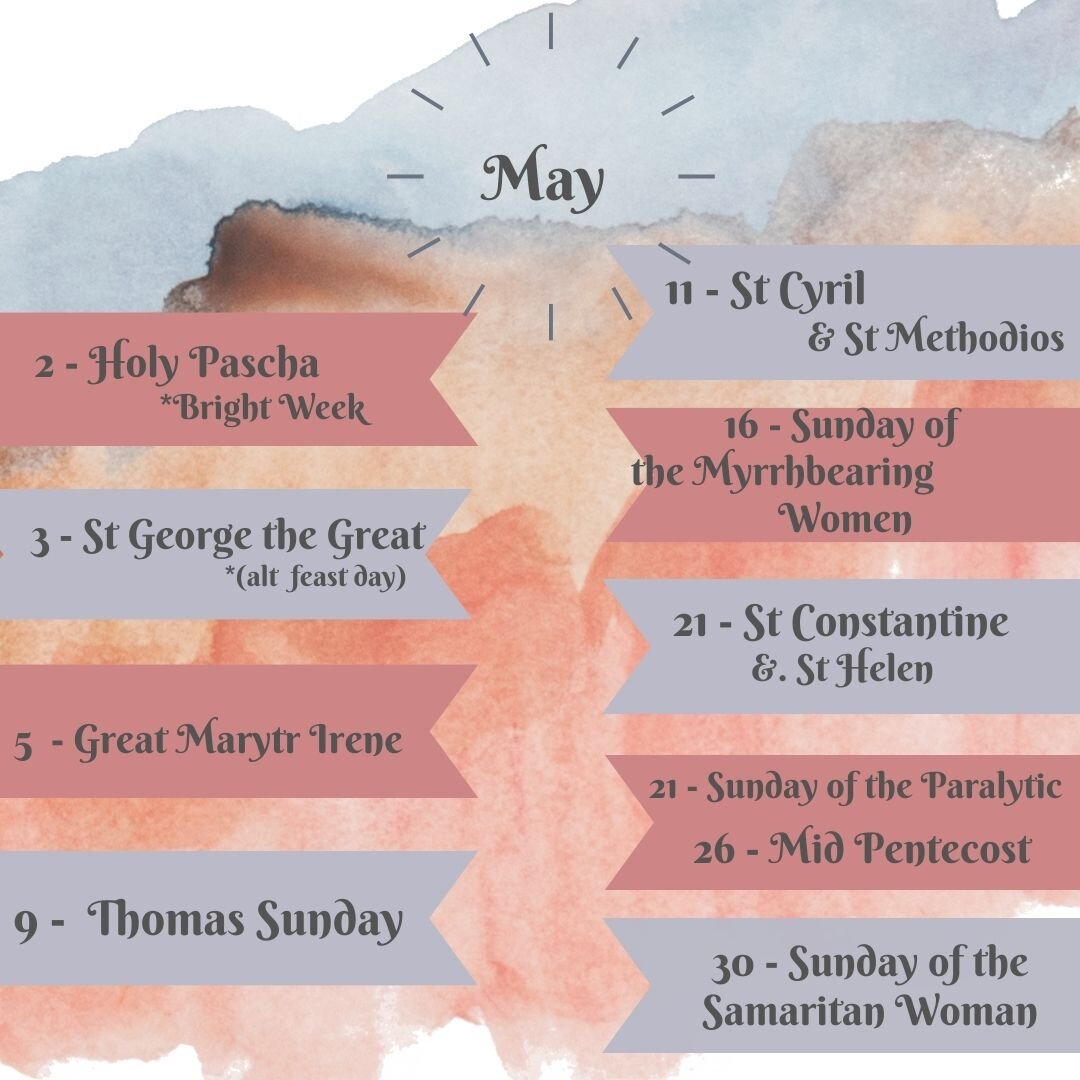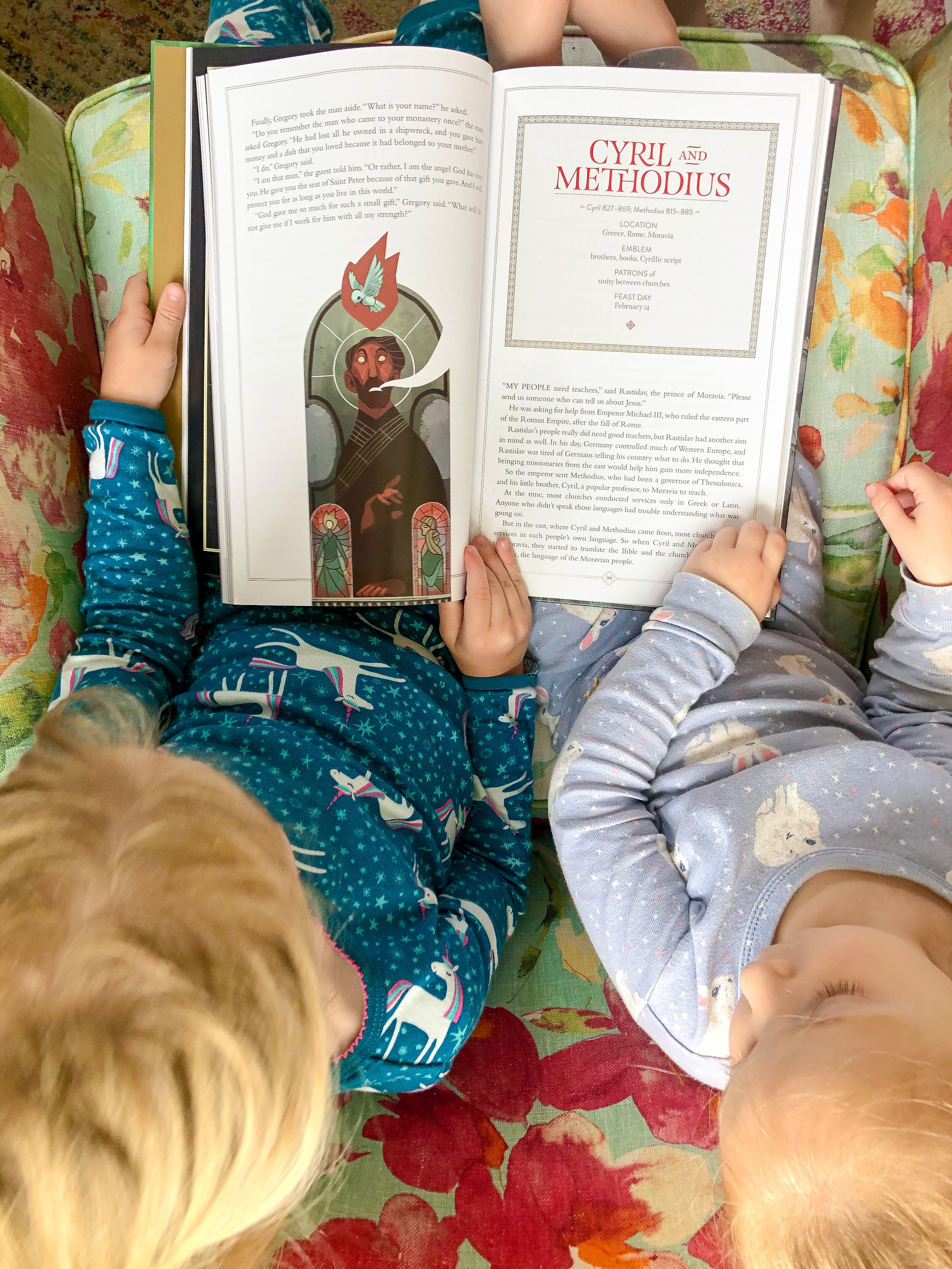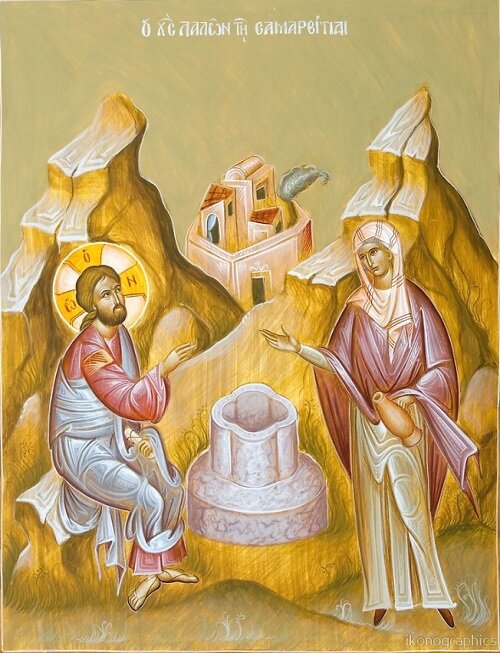May 23 - Sunday of the Paralytic
Sunday of the Paralytic- On the 3rd Sunday after Pascha, we commemorate the Paralytic man who Jesus healed in John 5:1-9, and we celebrate this miracle! To recount the story for you: Jesus went up to Jerusalem and there was a pool, which is called in Hebrew, Bethesda, that had five porches. In these porches lay a great multitude of sick people, blind, lame, paralyzed... All of these people were waiting for the moving of the water to be healed. For an angel went down at a certain time into the pool and stirred up the water; then whoever stepped in first, after the stirring of the water, he was made well of whatever disease he had.
Now a certain man was there who was unable to walk and was waiting for 38 years to be healed. When Jesus saw him lying there, he knew he had been in that condition a long time, and He said to him, “Do you want to be made well?” The sick man answered Him, “Sir, I have no man to put me into the pool when the water is stirred up; but while I am coming, another steps down before me.” Jesus said to him, “Rise, take up your bed and walk.” And immediately the man was made well, took up his bed, and walked.
Synaxarion: This event is placed here, because Christ worked this miracle at the time of the Hebrew Pentecost. For, having gone up to Jerusalem for the Feast, He went to the pool with five porches, which Solomon had built and which was called the Sheep’s Pool, because it was there that they used to wash the entrails of the sheep that had been slaughtered in the Temple for sacrifice; the first person to enter in, when the water was stirred by an Angel once a year, was made well. Christ found in that place a man who had been ill for 38 years and who lay there, despairing of finding anyone to place him in the water; from this we learn how beneficial endurance and patience are; and that since He was going to grant is Baptism, which cleanses every sin, God provided that miracles should be wrought in Old Testament through water, so that, when Baptism was bestowed, it might be accepted. Jesus came to this paralytic, who was called Jarus, and questioned him. Christ, knowing that he has been wasting away with illness for so long a time, said: “Rise, take up thy bed and walk.” At once, he became well, and taking his bed upon his shoulders, lest the event should seem illusory, he walked to his house. Since it was the Sabbath, he was forbinned by the Jews to walk. He explained that the One Who had healed him told him to walk on the Sabbath, thought he did not know Who He was; for when a crowd had gathered in that place, the Gospel says, Jesus secretly departed.
After this, Jesus found him in the Temple and said to him: “Behold, thou art made whole; sin no more, lest a worse thing come upon thee.” Some say- though incorrectly- that Jesus spoke these words, because this man would later smite Him when He stood before Caiaphas, the High Priest and would, as a result, be granted a worse trial than paralysis, that of being tormented in the eternal fire, not just for 38 years, but for ever; rather, the Lord showed that the illness of paralysis befell him because of his sins. However not all illness comes from sins, but in some cases it comes from physical causes, from gluttony, indifference, and many other factors. The paralytic, knowing that it was Jesus Who had healed him, made this known to the Jews; they, goaded into defending themselves, sought to kill Christ, because He had supposedly broken the Sabbath. Christ said much to them about this, maintaining that it is right to do good on the Sabbath; and that it was He Who, being equal to the Father, had said that one should keep the Sabbath; and just as His Father had worked, so did He work.
It should be known that this paralytic is different from the paralytic in St Matthew’s gospel; for the healing of the latter took place in a house, with men assisting him, and he was told; “Thy sins are forgiven thee.” This man was healed at the Porchases, and he had no man to help him, as the Holy Gospel says; but, like the other paralytic, he did take up his bed. It is celebrated now, because it occurred during the season of Pentecost, as did the wonders involving the Samaritan woman and the blind man. We celebrate St Thomas and Myrrh-Bearers in assurance of Christ’s Resurrection from the dead; but we celebrate the other wonders leading up to the Ascension, because they were done at different times in the season of the Hebrew Pentecost, and because St John, whose Gospel is read during this period, is the only Evangelist to mention them.
Activities:




























